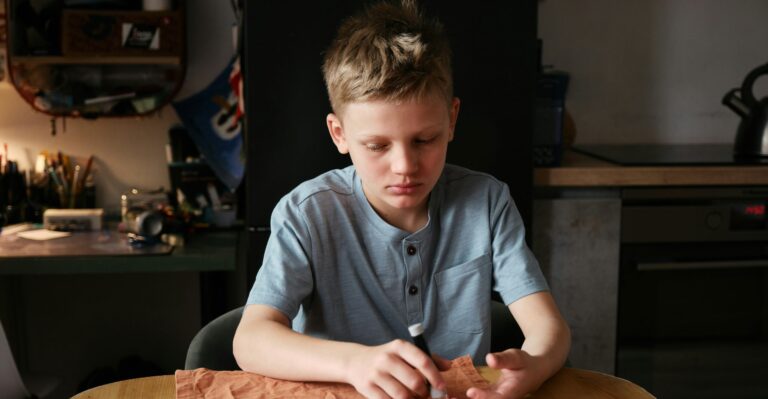When worrying becomes a problem
If your child’s worrying is constant, is getting worse and is stopping them from enjoying everyday life, they may be struggling with anxiety.
Anxiety in children can harm their well-being. Feeling anxious most of the time can affect their self-esteem and even lead to depression.
Things kids worry about
Worrying is a normal part of growing up, and knowing this can help you feel more reassured as a parent.
For instance, toddlers often experience separation anxiety, which means they might get upset when you drop them off at daycare.
When kids get to about four years old, they can start worrying about things in their imagination, like monsters, and fear the dark.
From about seven years old, children’s worries often shift from imaginary to real-life concerns. So, they might start fretting about the possibility of loved ones dying.
Teenagers, on the other hand, are likely to be concerned about a wide range of issues, including schoolwork, exams, friendships, sexuality, and body image.
What does anxiety in children look like?
Sometimes, it can be difficult for kids to paint an accurate picture of their feelings. Here are some tell-tale signs of anxiety to look out for:
Younger children
- Trouble sleeping
- Sudden bed-wetting
- Scary dreams
- Irritability and tearfulness
- Recurrent stomach aches or headaches
Older children
- Trouble sleeping
- Reluctance to try new things
- Difficulty coping with everyday challenges
- Trouble concentrating
- Frequently losing their temper
- General fearfulness
What causes anxiety in children?
Some kids are naturally more prone to worrying than others. But certain circumstances can significantly increase the chances of a child becoming anxious.
- Children who have experienced or witnessed domestic abuse are particularly at risk of developing anxiety.
- Family changes and disagreements can also make children feel on edge and anxious.
- Youngsters struggling with bereavement may be more likely to become anxious.

Talking to your child about anxiety
Allowing your child to try and put their anxiety into words is crucial. And properly listening will give you both a better understanding of their feelings.
What they tell you might raise your own anxiety levels, but it’s really important to stay calm. Similarly, try not to downplay their worries. Instead, reassure them that everyone worries from time to time and that talking about it is a positive step towards feeling better.
